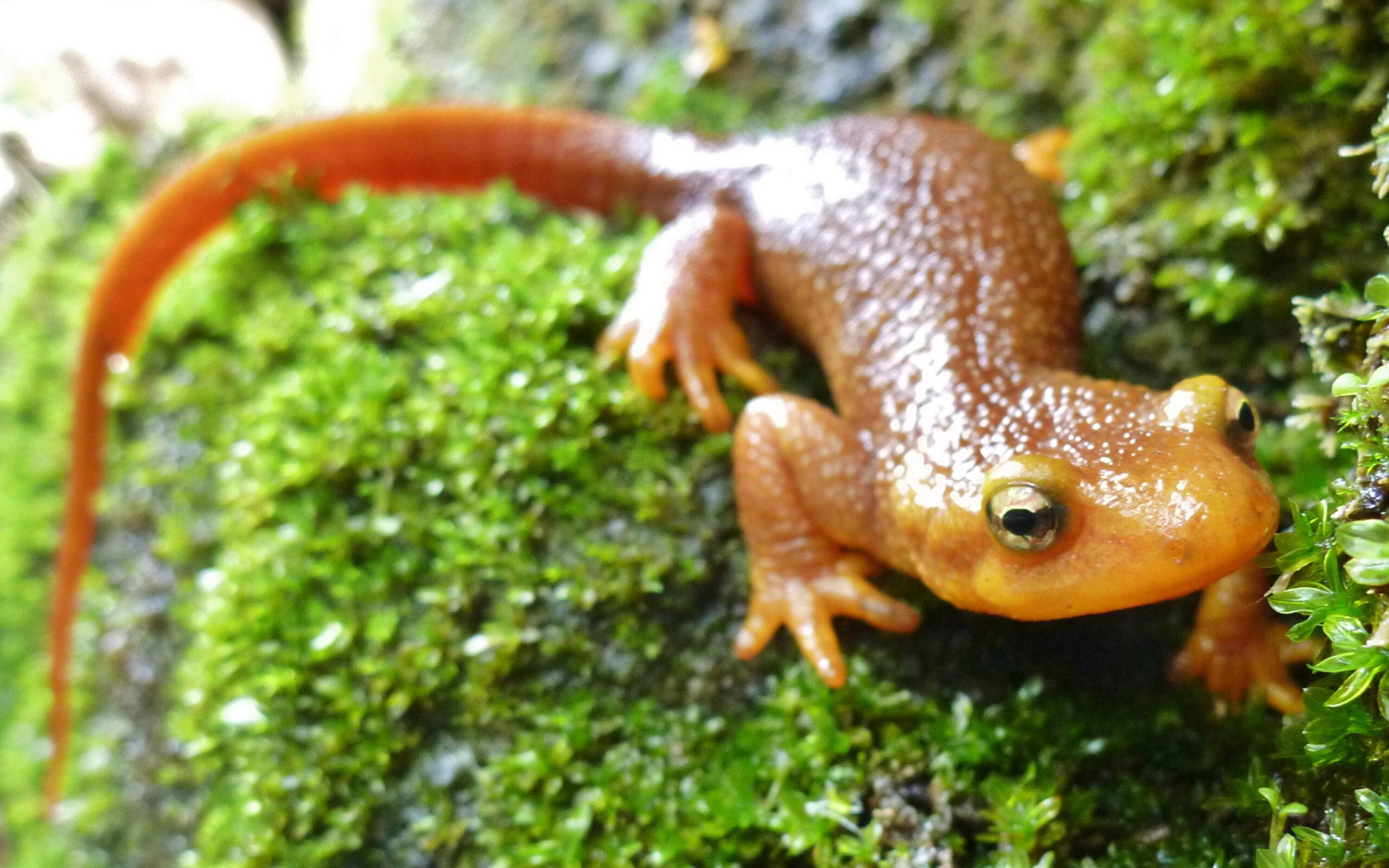The home of beloved newts at the University of California's Botanical Garden in Berkeley is in jeopardy unless the garden's Japanese pool can be renovated this summer, managers at the garden said.
The garden is trying to raise $150,000 by June 30 for the renovations, which must be made because repairs are no longer feasible to maintain the pool's structural integrity.
Two species of newts have delighted visitors for decades. California newts (Taricha torosa) and rough-skinned newts (Taricha granulosa) come yearly to breed in the Japanese pool, which anchors the garden's Asian collection of plants.
"I started following the population almost two decades ago when I assumed the directorship of the garden, since the newts were also one of my first research projects when I joined the Cal faculty over five decades ago," said Paul Licht, the garden's former garden director.
The amphibians are 5 to 8 inches long and have poisonous skin that protects them from predators. According to UC Berkeley's campus news service, each year, male newts stake out the pool and wait for females to come in from the garden.
During this process, the males are "transformed into a more aquatic form," Licht said in a podcast about the process. "Their skins get smoother and shiny, their tail flattens and looks like a fin, which is enlarged from swimming, and the muscles in their front legs enlarge to hold on to females during courtship." The males may wait weeks or months for the females, he added.
"Their flirtations culminate in a lengthy duet, called amplexus, during which the male clasps the female from behind and rubs his chin on her nose to stimulate her to lay eggs," Berkeley's campus news service reported.
"I became alarmed when the population showed a noticeable decline during the drought years but was encouraged to see more breeding this past winter," Licht said. "Unfortunately, the newts are now facing a new, perhaps more serious threat: the loss of their home!"
The Japanese pool was built with materials donated over 80 years ago from the Japanese exhibit at the 1939 Golden Gate International Exposition on Treasure Island in San Francisco.
The pool is leaking and has been for years. Repairs must be made this summer before the newt's next breeding season, garden managers said.
Donations can be made at botanicalgarden.berkeley.edu/save-our-newts.
